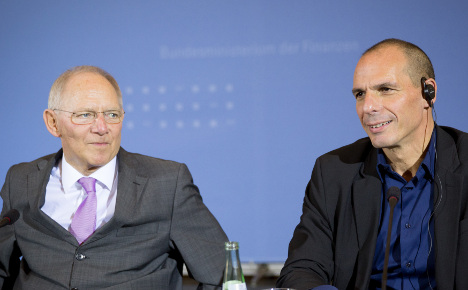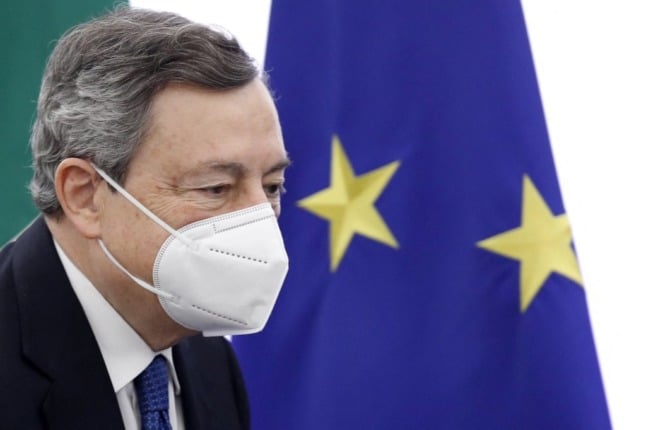"I was unable to hide my scepticism … that some of the measures do not go in the right direction," Schäuble said at a joint news conference with his Greek counterpart Yanis Varoufakis, where the two men also acknowledged a lack of agreement on many points.
Varoufakis told journalists that he and the rest of the newly-elected far-left Syriza government "need Germany on our side" in their quest to bring the country out of its years-long economic crisis, promising "a frenzy of reasonableness" on their part.
But his remarks already provoked his German interlocutor, as he once again brought up the suggestion that Greek debts could be completely written off, rather than reduced – already a red line for the German government and public opinion.
Schäuble said that he and Varoufakis both believed that a write-down of Greece's debt was not currently an issue.
"We agreed – if I understood correctly – that the issue of a debt haircut is not relevant at present," Schäuble told journalists, while Varoufakis vowed that Greece would do "everything in our power to avoid any default".
Varoufakis added that his governmemnt would need technical help and moral and financial support from the rest of the EU to fight against corruption and tax evasion.
In the end, Varoufakis said, Syriza had been elected so that "our fellow citizens can live in dignity again".
And he argued that Germany should be "the country that should be able to understand us best of all" when it came to the results of economic humiliation and hopelessness.
"When I return tonight, I will find myself in a parliament in which the third largest party is not a neo-Nazi party, it is a Nazi party," he said.
Schaeuble's face after Varoufakis brings up the Nazis. pic.twitter.com/pf3OpOJu9d
— Joseph Weisenthal (@TheStalwart) February 5, 2015
More to follow.



 Please whitelist us to continue reading.
Please whitelist us to continue reading.
Member comments